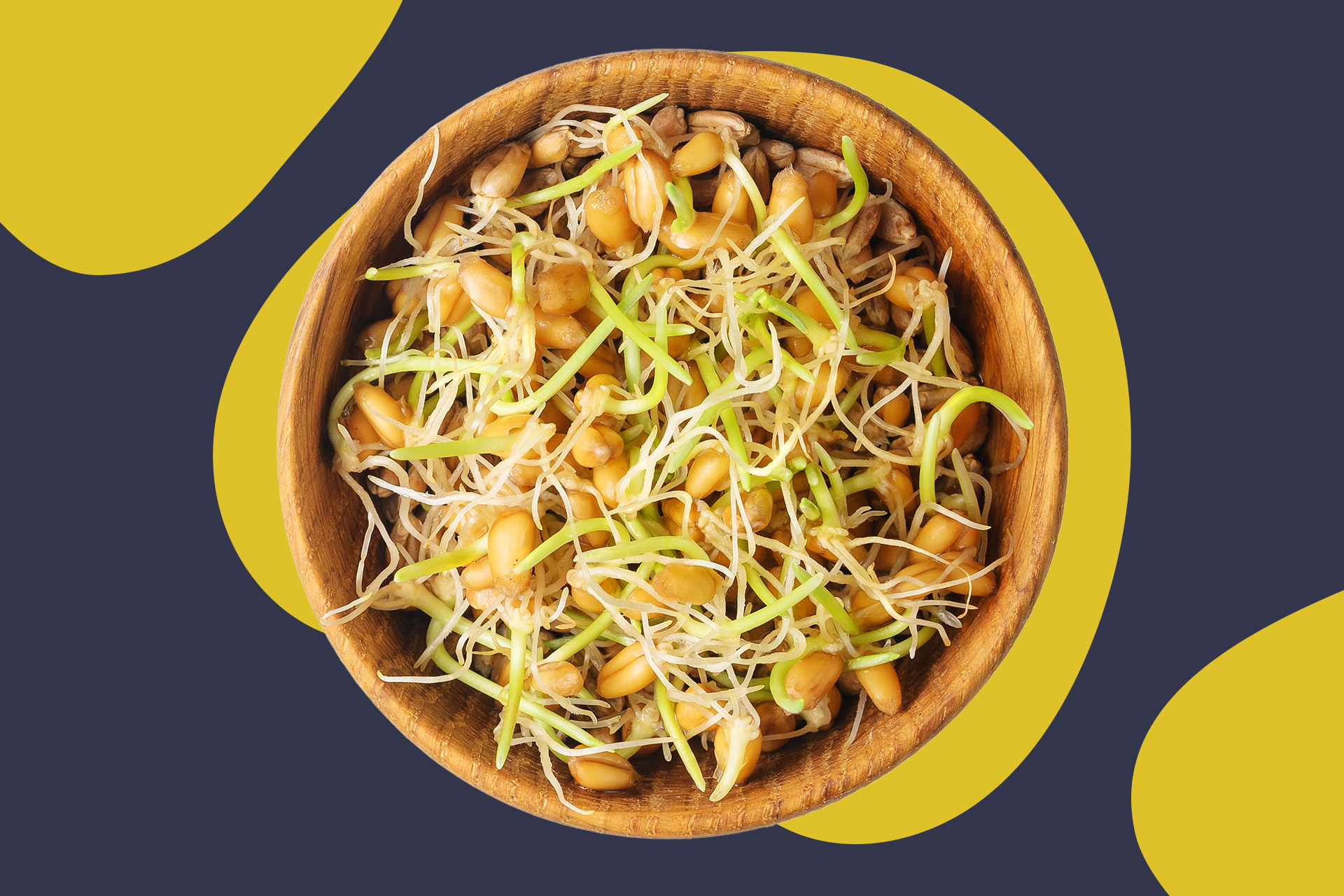
Body + Mind is reader-supported. We may earn an affiliate commission when you buy through some of the links on our site.
Sprouted grains are having a moment. Everywhere you look there are new products featuring sprouted grains – from frozen bagels to organic pizza crust. But are sprouted grains as healthy as they claim to be? And are they worth investing in?
There are many different kinds of sprouted grains. Wheat, millet, oats, rice and other grains can all be sprouted. Some people consume sprouted grains raw, while others prefer them dried and made into flour. Let’s do some investigating into the health benefits of sprouted grains, and whether they are actually worth your time.
Sprouted grains are simply seeds that have undergone the germination process before harvest. This process may increase the nutrient value of the grain since it has put all of its energy into producing a viable seed to produce more plants.
However, not all sprouted grains are equal. If you are interested in trying sprouted grains, do some research into the various products available. If you find regular grain products hard to digest, sprouted grains may be worth your time.
Sprouted grains are high in essential nutrients, including folate, iron, zinc and magnesium. Compared with regular whole grains, some sprouted grains can contain up to 300% more Vitamin A. In addition to being high in fiber, vitamins and antioxidants, sprouted grains are also low in calories and sodium. This is partially due to the fact that sprouting breaks down carbohydrates, possibly making them easier to digest than regular grains.
Perhaps the most notable feature of sprouted grains is their digestibility. Because of how the proteins and fats break down, sprouted grains may be easier to digest than regular grain. Research suggests that the germination process may also make nutrients more bioavailable, meaning that they are more easily absorbed during digestion.
This may be due to the breakdown of phytic acid, a substance often referred to as an “anti-nutrient”. Phytic acid decreases nutrient absorption, meaning that not only are sprouted grains possibly easier to digest, but they are also more nutritious.
Sprouted grains may be a reliable source of protein, depending on the type. Germination transforms proteins into amino acids and peptides, increasing the availability of protein during digestion. However, it is important to research specific types of sprouted grain and their protein levels, since certain types, like spelt and oat bran have higher levels than other options.
While sprouted grains may have important health benefits, it is important to exercise caution when adding them to your diet. You may be at risk for foodborne illness if you consume raw sprouts. If you are immunocompromised, it may be important to play it safe by cooking sprouted grains to 135° F before consuming.
Sprouted grains are more widely available than ever before, ranging from raw sprouts at the farmer’s market to frozen pizza dough. The germination process may make these grains more nutritious, though it is hard to measure the effectiveness of different products. For instance, freshly milled sprouted flour may be more nutritious than a processed granola bar with sprouted barley. If you are interested in trying out sprouted grains, there are plenty of reasons to check them out.
Sprouted grains may be a great option if you find regular grain products difficult to digest, or are looking for a low-calorie alternative to everyday white bread. Research shows that sprouted grains may also have less of an impact on blood sugar, with one study finding that sprouted rice had less of an effect on individuals with type 2 diabetes than regular rice.
If you are looking to try out a more nutrient-dense grain source, sprouted grains may actually be worth your time. Higher in fiber and protein than regular grains and lower in fat and carbohydrates, there are plenty of reasons to consider adding sprouted grains to your diet.